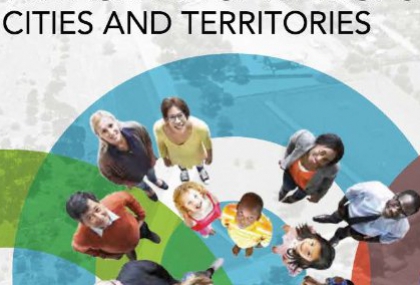
The GOLD IV Report makes a strong case for the territorial approach for development, effective multi-governance frameworks and multi-stakeholder alliances in order to make the transition towards sustainable urbanization and the implementation of the SDGs and the new agendas. The conclusions of the report leave no doubt that these three issues are of key importance for their success.
In October 2016, UCLG presented its fourth Global Report, GOLD IV that inspired the development of the Bogota Commitment and Action Agenda adopted during the UCLG’s World Congress. To bring the vision of the different types of local and regional governments, the GOLD IV Report explores the main challenges of metropolitan areas, intermediary cities and territories – i.e., regions and small towns– in an increasing urbanized world. The report develops the vision of our network and illustrates, through hundreds of examples, how local and regional governments are contributing to the political momentum ignited by the key international accords approved over the last few months: the 2030 Agenda and the SDGs; the Paris Agreement on climate change; and the New Urban Agenda.
GOLD IV represents UCLG’s legacy and contribution to a debate that is going to shape a global alliance for the sustainable future of cities, territories and communities worldwide. Together with tailored recommendations for all cities and territories, the GOLD IV Report explore how a territorial approach for development, effective multi-governance frameworks and multi-stakeholder alliancescould contribute from bottom-up to build a new social contract and guide the transition, over the next few decades, towards a more inclusive, democratic and sustainable local governance and more balanced and cohesive urban and territorial systems. It will be a critical tool to support local and regional governments in their advocacy work and in the development of their strategies for the ‘localization’ of the SDGs and the other global agendas during the coming years. We encourage you to read the report, which also provides valuable input for development cooperation programmes, and to contribute to the dissemination of it.
